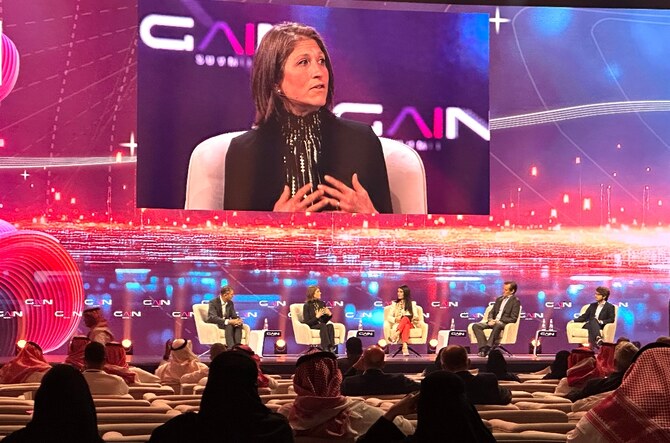
- ARAB NEWS
- 02 Jul 2025

RIYADH: Artificial intelligence experts have delivered their visions for the future of the technology at the 3rd Global AI Summit in Riyadh.
With AI already evolving at breakneck speed, one expert said that humans could take a back seat to the technology in just 10 years’ time.
“So, I think we will have models that are more sophisticated, more intelligent than humans on basically any topic. I think that will be a very powerful and good thing, and I don’t think that it will be dangerous.”
Turner’s hope is that AI will be able create models that automate menial business tasks, freeing up employees’ time and producing value.
However, Dr. Richard Benjamins, the co-CEO of RISE.ai, said that artificial general intelligence may not be the key to the technology’s evolution.
“In 10 years, I believe that we will not have artificial general intelligence, so not general intelligence, but we will have much better problem solving,” he said.
“So, it’s not about emotions, about fear or power or what the AI wants or its intentions; it’s about solving hard problems, which we will use for business, and I think mostly in the context of the co-pilot concept. So, humans in the driving seat.”
But the danger, Benjamins added, is that human brain power may deteriorate as AI takes on all the hard work. Who remembers phone numbers anymore, he asked, when your mobile phone takes care of all the memory.
“I predict one of the jobs in the future will be to run a fitness center for your brain, because we don’t have to think anymore, we don’t have to be creative anymore,” Turner said.
“It’s all done by AI. So, I think that’s one of the risks that we hardly are seeing yet. In the future, we need to go to the gym to stay mentally healthy.”
But there is an upside to the evolution of AI, Turner added.
“In research, I think we’ll be making incredible groundbreaking biological discoveries. We’ll probably start getting towards the foundation of biology, understanding how we work, why we are the way we are, why we get diseases, how we potentially prevent them.
“When you go and see your GP, suddenly if some anomaly pops up, they’ll know what to do with you in a much more streamlined fashion.”